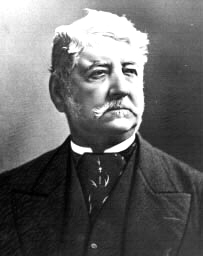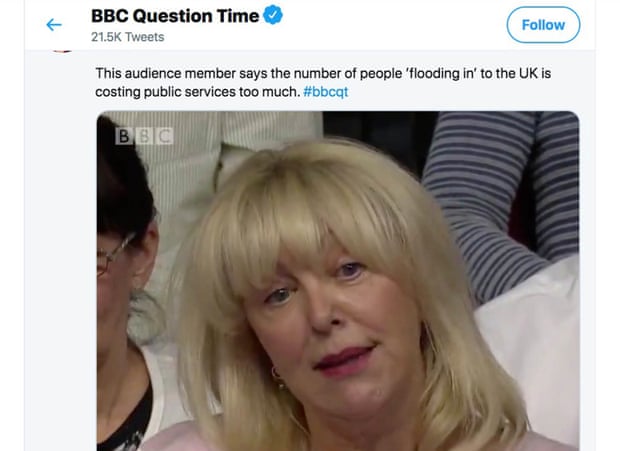Towards the end of my forthcoming book “Called to Account”, set in famine stricken County Clare, the protagonist, Arthur Kennedy, muses about Thomas Malthus’s theories about the limits on population. Arthur concurs with many of the thinkers of his time in their belief that there is ample space in the New World and that immigration is the solution to over-population and starvation in his homeland.

7th Governor of Hong Kong
Kennedy, an Ulster man, would go on to govern several of the new territories, established by Britain, in Africa, Asia, Australia and North America., services for which he was knighted.
What such a life underlines is the extent to which Britons, like most of the rest of Europe, being descended from migrants – Vikings, Saxons, Normans – were themselves inveterate migrants.
Young men and women, sometimes whole families, travelled at considerable risk in search of better lives in these newly discovered lands. Ship owners profited from the trade. Traders made fortunes transferring material resources from these territories in order to feed, clothe and house those who remained back home in Blighty.
They gave little thought to the indigenous peoples of these territories, pushing them off the land, using force where necessary. Even after the ending of slavery, natives were used as cheap labour in the mines and plantations by means of which an enormous variety of crops and minerals were extracted and transported to Europe.
Later, when Britain and Europe needed labour to rebuild after two attempts to destroy each other as they fought over the very resources they’d plundered from the rest of the planet, they were happy to recruit that labour from among the descendants of slaves and labourers their own ancestors had employed in those trades.

And now we have that awful woman on Question Time claiming “The country is full up . . . It’s time we closed the borders and stopped immigration altogether.” The woman’s effrontery, ignorance and arrogance are beyond belief. Yet a moment’s thought tells us we should not be surprised. Similar opinions, disguised as facts, although usually framed in less intemperate language, have been the daily fodder from the right wing, largely foreign owned, print media for decades.
The reality is that, compared to much of the world, the UK is not “full up”. However, at 7.8 billion and rising, the planet arguably is full up. The UK’s 68 million is but a tiny proportion of the total number of individuals, many doing the same as those former refugees from UK famines and epidemics, seeking a better life elsewhere. It should be no surprise that their first choice of destination is the one that has grown rich at the expense of their ancestors!
For the record, the UK ranks at 32 in the list of most densely populated countries. Several of those with a greater population density are much smaller, city states like Hong Kong, Singapore and Monaco for example. Within Europe, Belgium and the Netherlands are more densely populated than the UK.
Among the larger nations, India, Japan, Vietnam and the Philippines are more densely populated. The USA is among the least densely populated nations, at position 145 on the list.
Of course, simply dividing the population by the land area, as this list does, cannot provide a full picture: we need to know how much of the land is habitable and that is much harder to define.
As for Malthus, if it was easy to dismiss his theories in a world where the population was less than 1 billion and there where empty plains and forests ripe for exploitation by eager migrants, I would argue that it is impossible to ignore them today.
The problem is not the birth rate, which has halved over the past 50 years, so much as our effectiveness in reducing the death rate and prolonging life.
Although Malthus and Kennedy were born 50 years apart, average life expectancy in Europe in both their lifetimes was around 35. And although both men, living privileged lives, survived much longer (Malthus died a few months before his 68th birthday, Kennedy shortly after his 74th.), that was exceptional, whereas the average age at death today, in Europe and most of the developed world, is almost 80, many living well into their 90s and beyond. The number of centenarians in the world at the start of the 21st century, was around 150,000. Today it is estimated to be over 570,000, a near fourfold increase in just 20 years.
It would be inappropriate for me to extend my musings to culling and eugenics, despite the latter also having featured in the week’s news. Suffice to say that, unless we resort to cruel practices, we must be prepared to accept that the movement of people from the genuinely over-crowded parts of the world to those with space to spare is likely to accelerate, not reduce.

Good topic for musings. Immigrants add value to nations in many ways … they bring skills, cultural diversity, new foods, trends, fashion, language, and traditions. The U.S. as we know it today, having killed off or pushed off most of the indigenous people, is a nation founded and populated by immigrants. And yet, today people are scared … they say we have no more room, which is not true. They say immigrants will take their jobs, when in fact the reality is that immigrants will do the jobs people here don’t want to do. They say immigrants are terrorists, or murderers and rapists … also not true. And why do they say it? Because the leaders promote that “fear of other”. Because it gives them a weapon to use to keep the masses complacent. Whereas the real threats … the things people should really be afraid of, such as toxic chemicals on our food and in our water supplies, carbon emissions and climate change … the leaders claim are hoaxes. ‘Tis a screwed up world, on both sides of the big pond, my friend.
LikeLiked by 1 person
After reading your comment, I was satisfied that anything I could have said would have never matched it in accuracy and eloquence. Great comment, Jill.
LikeLiked by 2 people
Thank you, Sha’Tara! I appreciate it!
LikeLiked by 1 person
Thanks for the support, ladies (is that word aceptable these days?)
LikeLiked by 1 person
Totally acceptable to me… why, it might even be a compliment!
LikeLike